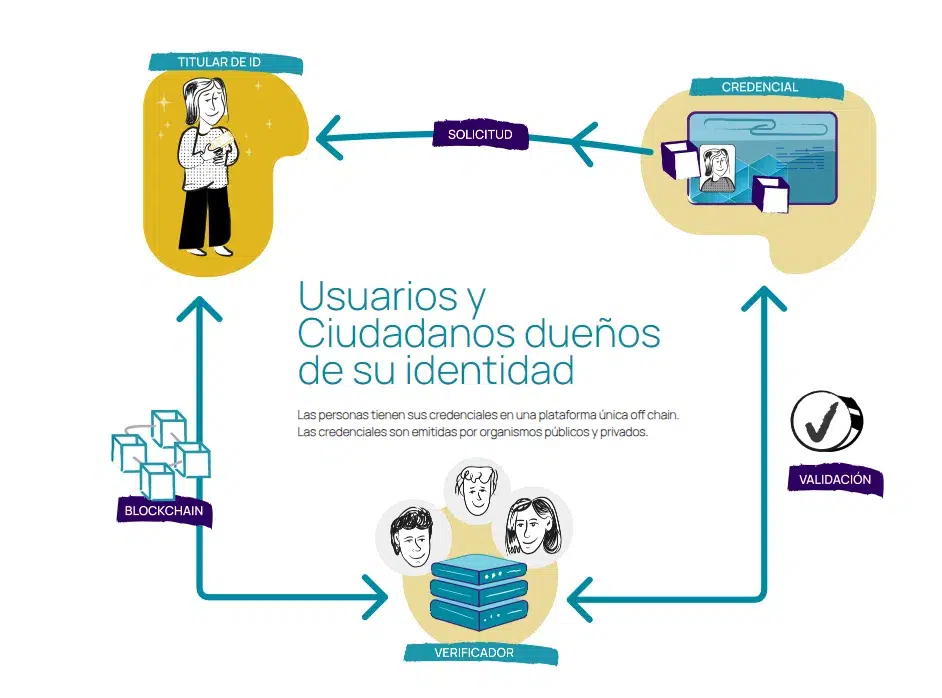- Buenos Aires is set to revolutionize citizen identification with a blockchain-based system, leveraging zkSync through QuarkID for enhanced security and privacy.
- This innovative approach connects with Ethereum, Polygon, and Rootstock, marking a significant leap in technological interoperability and digital identity management.
Buenos Aires is preparing to implement a citizen identification system based on blockchain technology, using zkSync through QuarkID. This system will connect with platforms such as Ethereum, Polygon, and Rootstock, marking a significant advance in technological interoperability.
The arrival of QuarkID in Buenos Aires signifies the start of an autonomous digital identity project that integrates zkSync into its network of alliances. This strategic move facilitates reliable verification through the rollup on the Ethereum blockchain, setting a precedent in digital data management.
QuarkID positions itself as a pioneer in the creation and management of digital identities, based on a decentralized model. This approach is founded on public key cryptography and the distributed ledger of giants like Ethereum, Polygon, Rootstock, and now zkSync, establishing itself as a leader in the implementation of this system.
This technological advancement promises a future where each individual, equipped with a mobile device, will have absolute control of their digital identity, revealing only what is necessary to obtain services, verify their identity online, or in any situation that requires the confirmation of personal data. The immutability of distributed ledgers ensures the integrity of information once verified, following the Bitcoin model.

QuarkID, an open-source project, adopts zero-knowledge proofs, similar to those used by zkSync to improve Ethereum’s scalability. These cryptographic proofs allow for the demonstration of the truth of a statement without disclosing information about the statement itself.
In the world of distributed ledgers, zero-knowledge proofs empower users to validate the authenticity of transactions and smart contracts while maintaining their privacy. zkSync embodies the principle of “don’t trust, verify,” simplifying complex processes and facilitating operations with a single click, paving the way toward more integrated and harmonious systems.
zkSync also stands out for its cost-efficiency. Among the various scalability solutions based on Ethereum, zkSync offers operations at a much lower cost.
QuarkID emerges as an avant-garde project in digital identity, grounded in cryptography and blockchain technology, the result of collaboration between public and private entities. Collaborators include the Government of the City of Buenos Aires, the municipalities of Vicente López and Luján de Cuyo, along with companies such as Extrimian, OS City, IOV Labs, Xcapit, BEON.tech, and Matter Labs, creators of zkSync. Its launch, initially scheduled for January 2023, is currently in a testing phase with a select group of users.
Any entity that joins this open protocol will be able to issue digital identities, promoting a transparent and accessible registry for all. The verification of information will be stored on the chosen network, ensuring transparency and equitable access for all participants.
Data protection is crucial in this environment, where decentralized networks offer a robust defense against cyberattacks, preserving the privacy and security of citizen information in a context of increasing vulnerability.
Looking beyond Buenos Aires, QuarkID seeks to expand to other regions of Argentina such as Vicente López, Luján de Cuyo, Mar del Plata, Salta, and Entre Ríos, and is also outlining plans for cities in Mexico and Colombia.